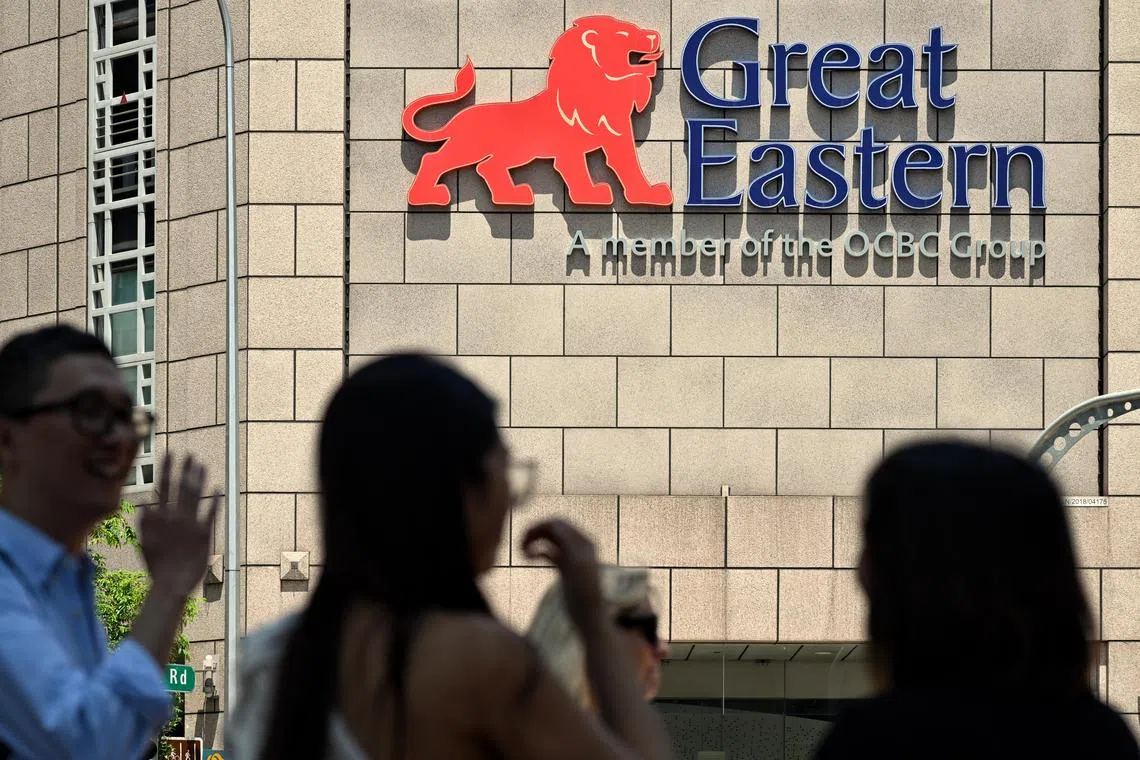Great Eastern to resume trading on SGX after bonus issue increases free float to more than 10%
Sign up now: Get ST's newsletters delivered to your inbox

About 11.76 per cent of the company’s voting rights will now be held by the public, which meets the free float requirement minimum of 10 per cent.
PHOTO: ST FILE
Follow topic:
SINGAPORE – Great Eastern (GE) is set to resume trading on the Singapore Exchange after a proposed bonus issue restored the insurer’s minimum free float requirement.
About 11.76 per cent of the company’s voting rights will now be held by the public, which meets the free float requirement minimum of 10 per cent, the company announced on Aug 14.
GE will ask for the trading suspension to be lifted and its stock to resume trading on Aug 21.
The shares were suspended in July 2024 after the public float fell below the 10 per cent minimum following a takeover bid by majority shareholder OCBC.
Following the bonus issue, 29.7 million bonus ordinary shares and 443.6 million Class C non-voting shares were issued.
Around 5,400 Class C non-voting shares were also issued to public shareholders.
Shareholders were given the option of choosing between taking up non-voting shares or receiving bonus shares by 5.30pm on Aug 7.
The bonus issue involved shareholders receiving additional shares in respect of their existing holdings, unless they elected to receive non-voting stock.
GE said the bonus shares are identical to existing shares and will count towards meeting the free float requirement, while Class C non-voting shares will not count towards the free float.
OCBC helped restore the free float by receiving Class C shares, a move that diluted its own holding of GE voting shares from 93.72 per cent to 88.19 per cent.
OCBC associate BOS Trustee and the estate of the spouse of GE director Teoh Lian Ee hold the remaining voting shares.
In July, a proposed delisting resolution failed to pass at a GE extraordinary general meeting. The conditional exit offering of $30.15 a share made by OCBC also lapsed.
Shareholders were then asked to vote for the resumption of trading resolution.
This meant adopting a new Constitution to create Class C non-voting shares and undertaking the proposed bonus issue.
Around 98 per cent voted to adopt the new Constitution and the bonus issue.
In July, GE chief financial officer Ronnie Tan said the company is optimistic that it would resume trading, adding that taking on Class C shares has its disadvantages.
While these shares still carry full economic rights, including dividends, they are not listed, not redeemable and carry no voting rights.
Mr Tan said: “It doesn’t make sense for shareholders, other than OCBC, to take on Class C shares because it has disadvantages. Shareholders will be giving up quite a lot if they want to choose Class C shares.”

